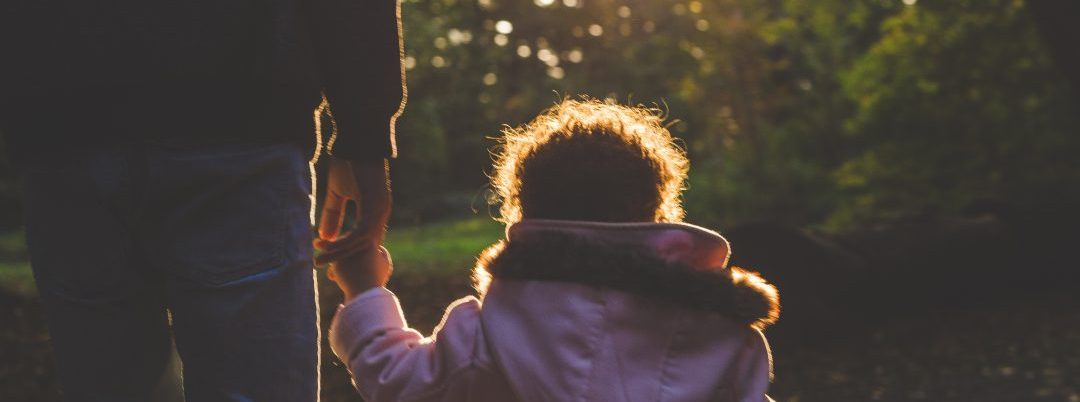
Children are characterized by their loving, playful, and innocent ways. They smile and laugh and play the days away—unaffected by the many evils and dangers of the world, all thanks to their oblivion and the tireless efforts of adults to maintain that oblivion. We seek to protect them from the bad things, to maintain their innocence as long as humanly possible.
And while it’s easy to block potentially problematic TV channels or tell them they can’t hang out with the troublemakers in their class, sometimes it’s more difficult to keep them in the dark—and some circumstances beg the question, should we keep them in the dark?
Monday morning, we woke to news of the deadliest mass shooting in U.S. history. We stared in shock at our TV screens, hugged each other as we grieved, and proved unable to fathom the heartbreaking tragedy. And then we wondered how or even if we should talk to our children about it—especially when the subject matter is hard to comprehend ourselves. While each parent ultimately decides the answer to this question, it’s important to use the child’s age as a guide in deciding how to approach the difficult topic of terror:
Preschool-Kindergarten Age
According to Dr. Deborah Gilboa, a parenting expert who discussed this topic on the Today Show, “if it doesn’t directly affect your family, kids under 8 do not need to hear about this,” unless they’re at risk of finding out about it from others. If that’s the case, then parents need to first decide how they want their kid to understand the tragedy. For example, maybe they simply want the child to know that a mean person hurt people—in this instance, they should only present that information. The key is to keep it at a one-sentence narrative.
Elementary School Age
Children at this age will prove much more curious, as they’ll challenge short descriptions and accounts. Therefore, parents must again first decide how they want their child to perceive this traumatic event and how much information they want to share, then take it from there. Either way, the information should come from the parents, not from newscasts or pictures in the paper—images will take root in the the kids’ minds and negatively affect them. However, if children do accidentally get hold of the remote or catch a glimpse of a newspaper clipping, parents can attempt to counter the effects: simply try to balance out these negatives with the positives by showing them pictures of “the amazing people who rushed to help,” Gilboa recommends.
Middle School Age or Tweens
At this age, sometimes protecting these tweens means talking to them about such harrowing events and topics. But you need not forget who you’re talking to—they’re just kids. Approach the conversation in a sensitive manner by first asking your child if and what they know about the incident. If they have heard about it, parents should listen to how they feel. And if they haven’t yet found out about the shooting, then parents have a unique opportunity: they can can share their own beliefs with their kids while also better understanding where their kids stand on the issue at hand.
High School Age or Teens
Again, parents should first approach this topic of conversation by asking teenagers what they know about recent events and encouraging them to share how they feel. However, it’s important to know that teens will expect and demand more. They’ll seek to understand why such tragic events happen and why such evil exists. And they’ll also ask difficult questions like ‘Why? Why do people do such terrible things?’ Questions such as these might be impossible to answer, but you should welcome them, nonetheless. You can then pose your own questions like ‘What can we do to help?’ and take this opportunity to teach them about resilience. “What we want our kids to do when [they] see something wrong is to fix it,” says Gilboa.
If you do decide to talk to your kids about this recent tragedy, it’s important to remember how easy it is to become overwhelmed by this subject matter: it’s scary, it’s saddening, and—quite frankly—it can be traumatizing. So it’s important to follow up with your kids after having these tough conversations and make sure they’re coping okay. If they experience sleep problems, demonstrate changes in behavior, and express emotional problems, they’re possibly not coping well and might need additional support or medical attention. Ultimately, you should keep an extra watchful eye on your children during times like these—they need you.
Let’s keep in touch! Sign up to receive our newsletter:
Start a Relationship with An Exceptional Counselor
- Skilled and caring professional counselors
- Accepting all major and most insurances
- High-touch customer service & premium benefits
- Same- or next-day appointments
- Ultra-flexible 23.5hr cancellations













